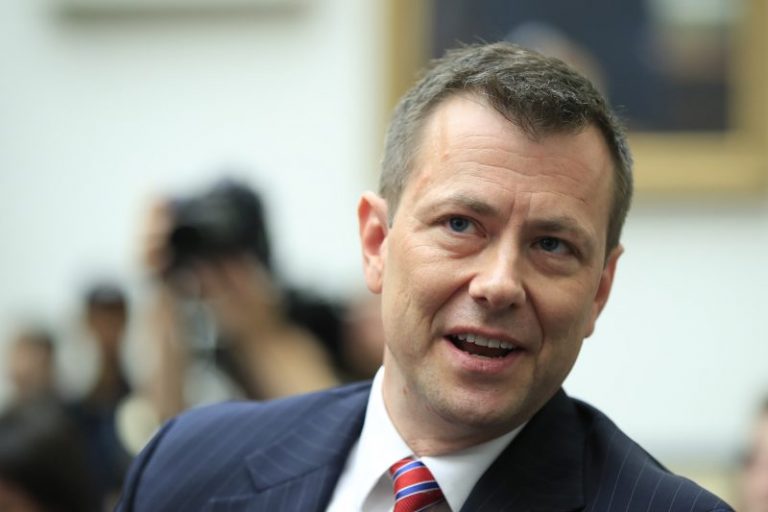An appellate court won’t block former president Donald Trump from being questioned under oath in a lawsuit brought by two former FBI employees who say his administration persecuted them for political reasons.
The Justice Department sought to block Trump from being compelled to answer questions about the handling of text messages between FBI attorney Lisa Page and FBI agent Peter Strzok that exposed their opposition to his candidacy and their personal relationship. The two are suing the Justice Department, not Trump, but say the former president was inappropriately involved in how they were treated.
Judge Amy Berman Jackson allowed for the two-hour deposition earlier this year, saying that Trump’s repeated public statements about the pair justifies further probing of whether he pressured the Justice Department to retaliate against them after the investigation of Russian interference in the 2016 presidential election.
A three-judge panel of the U.S. Court of Appeals for the D.C. Circuit on Friday denied an emergency petition from the Justice Department to block Berman Jackson’s ruling. Absent another appeal, Trump’s deposition will now go forward. The former president has not intervened to prevent the deposition.
The two judges who voted to deny the Justice Department petition are Democratic appointees; a Republican appointee on the panel said she would have blocked the deposition.
Page, who resigned, says the texts were released in violation of her privacy; Strzok says he was fired in retaliation for protected speech.
Both were assigned before that election to investigate whether Hillary Clinton broke the law by using a private email server and Russian interference into Trump’s campaign. The exposure of their anti-Trump messages in 2017 fueled Republican allegations that FBI bias drove the Russia probe. An inspector general investigation found no evidence that their opinions affected their work; a special counsel appointed by Trump was more critical of the FBI but agreed investigating Russian interference was warranted.
Attorneys for the Justice Department argued that other officials have already testified that their decisions to release the texts and fire Strzok were made independently of Trump. But the plaintiffs say some of those officials did not recall relevant details, and note that Trump personally took credit for driving them both out of the FBI.

